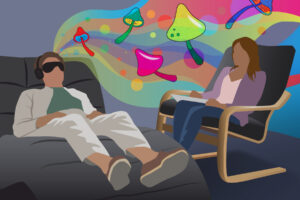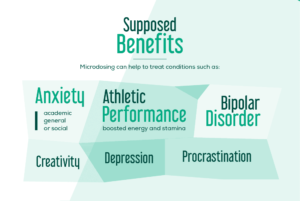YOUR CART
- No products in the cart.
Subtotal:
$0
BEST SELLING PRODUCTS
$25 – $450
$150 – $200
USE "LUCIDWORLD15" CODE FOR -15% OFF PURCHASE WITH BTC!!! Dismiss

Psychedelic therapy and microdosing are rapidly gaining attention as innovative approaches to mental health treatment and personal development. This article explores the therapeutic use of psychedelics, the practice of microdosing, their benefits, effects, and the future of psychedelics-assisted therapy.
Psychedelic therapy refers to the use of psychedelic substances—such as psilocybin (magic mushrooms), LSD, MDMA, and ayahuasca—in controlled therapeutic settings to treat mental health conditions like depression, anxiety, PTSD, and addiction. Unlike conventional psychiatric medications taken daily, psychedelic therapy often involves one or a few supervised sessions where patients experience altered states of consciousness under professional guidance.
Preparation: Patients undergo preparatory sessions to set intentions and understand the process.
Administration: Psychedelics are administered in a safe environment. Patients often wear eyeshades and listen to music to focus inwardly.
Integration: Following the experience, therapists help patients process insights gained during the session.
Studies show promising results for conditions like treatment-resistant depression and PTSD. For example, psilocybin therapy has been granted “breakthrough therapy” status by the FDA for its potential efficacy.

Microdosing involves taking very small amounts of psychedelics—typically 1/10th to 1/20th of a full dose—to achieve subtle benefits without experiencing hallucinations or a “trip.” Common substances for microdosing include LSD and psilocybin mushrooms.
Choose the Substance: Popular options include LSD (6–25 micrograms) or psilocybin (0.1–0.5 grams of dried mushrooms).
Start Small: Begin with the lowest dose possible to avoid noticeable psychoactive effects.
Follow a Schedule: Many users follow a regimen such as dosing every third day or weekly.
Track Effects: Keep a journal to monitor mood, focus, creativity, and emotional well-being.
Ensure Legality: Be aware of local laws regarding psychedelic substances.
Proponents of microdosing report various benefits:
Enhanced creativity and focus
Improved emotional resilience
Reduced symptoms of depression and anxiety
Greater sense of connection and mindfulness
A systematic study found that microdosers experienced lower levels of stress and distractibility while reporting increased absorption and creativity.
Unlike full doses that induce hallucinations, microdoses produce subtle effects:
Increased clarity without feeling “high”
Improved mood and energy levels
Enhanced problem-solving abilities
However, effects vary among individuals due to factors like dosage, substance type, and personal sensitivity.
The field of psychedelics-assisted therapy is evolving rapidly:
Ongoing clinical trials are expanding applications for conditions like major depressive disorder and addiction.
Integration with traditional therapies like cognitive-behavioral therapy (CBT) is being explored to amplify results.
Legal frameworks are slowly adapting, with some countries decriminalizing or regulating psychedelics for therapeutic use.
Successful integration requires:
Professional supervision during sessions
Comprehensive preparation and follow-up integration therapy
Public education about risks and benefits
Current research emphasizes the importance of “set” (mindset) and “setting” (environment) in achieving positive outcomes.
Psychedelic therapy offers transformative potential for mental health treatment, while microdosing provides subtle benefits for personal growth in a controlled manner. As research progresses and societal attitudes shift, these practices may become integral parts of holistic wellness strategies.
Whether exploring therapeutic psychedelics or recreational microdosing, safety, legality, and professional guidance remain paramount for optimal results.